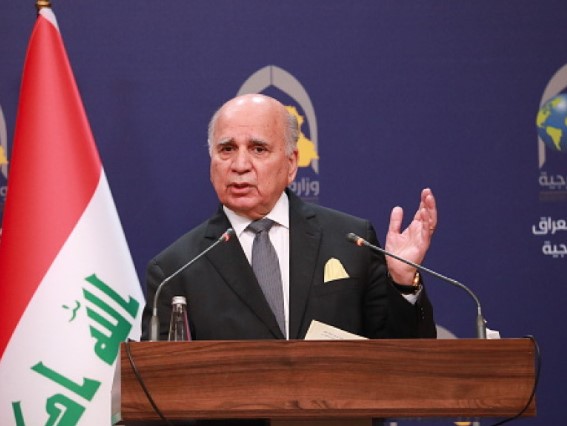The Israeli military has resumed intense airstrikes on Gaza, leading to massive destruction and loss of life.
Israeli Strikes Resume, Triggering Widespread Condemnation
According to Gaza’s health ministry, at least 413 Palestinians were killed, and 562 others were injured in a single day of bombing. These attacks are among the deadliest since the conflict began 17 months ago.
The escalation follows an order from Israeli Prime Minister Benjamin Netanyahu after Hamas refused to amend a ceasefire agreement. The truce, which had been in place since January, was abruptly shattered, bringing back large-scale military operations in the region. The renewed strikes have further worsened the humanitarian crisis in Gaza, with thousands of civilians left in fear and uncertainty.
In response to the escalating violence, the Iraqi Ministry of Foreign Affairs issued a strongly worded statement condemning Israel’s actions. The ministry described the attacks as a “flagrant violation of international and humanitarian law” and called for immediate global intervention to protect Palestinian civilians. Iraq has consistently voiced its support for the Palestinian cause and has remained critical of Israel’s military policies in the region.
Merciless Onslaught Continues: 400 Gaza Civilians Killed Under Israel’s Airstrikes
Iraq Faces Direct Threats of Israeli Strikes
As Israel continues its military operations in Gaza, new concerns have emerged regarding possible Israeli strikes on Iraq. Iraqi Foreign Minister Fuad Hussein warned that Israel has signaled intentions to launch attacks on Iraqi territory. According to Hussein, Iraq received “messages” through a third party, indicating that Israel might target the country in response to actions by Iraqi armed factions with close ties to Iran.
Hussein emphasized that Iraq does not seek war and that the government remains committed to stability. However, he acknowledged that the threats posed by Israel are serious, especially given Iraq’s strategic location near Iran. Iraqi security officials fear that any escalation in violence could drag the country into a broader regional conflict.
Security and political analyst Ghani Al-Ghadban explained that Israel’s threats serve as a warning to Iraqi militias. The Israeli government wants to prevent any retaliatory attacks from Iraq-based armed groups following the intensification of strikes in Gaza and Yemen. Al-Ghadban also noted that a direct warning from the U.S. Secretary of Defense further heightened the stakes.
Message to Iran: U.S. B-52s Operate with Israeli F-35Is Amid Rising Tensions in Middle East
According to him, the U.S. made it clear that the Iraqi government must keep armed groups under control and ensure that all weapons remain in state hands. If not, both the U.S. and Israel could take severe measures against Iraq. The strong warnings from Israel and the U.S. indicate that any attacks from Iraqi factions would be met with immediate retaliation.
Despite the threats, Al-Ghadban believes that Iraq’s pro-Iran militias will avoid any actions that could provoke Israel or the U.S. He explained that these groups are aware of the consequences and that any military aggression on their part would lead to a powerful and immediate response from both Washington and Tel Aviv.
Regional Tensions and Fears of Wider Conflict
Tensions across the Middle East have been steadily rising, with multiple countries now involved in military operations. Iran-backed armed factions in Iraq had previously agreed to halt their attacks on Israel after a truce between Hamas and Israel on January 19. However, the situation remains fragile, and regional actors continue to assess their positions.
U.S. Plans Troops Withdrawal From Iraq by 2026
Professor Ihsan Al-Shammari, a strategic expert from the University of Baghdad, warned that Iran is deeply concerned about a potential Israeli military strike on its nuclear facilities. If no agreement is reached regarding Iran’s nuclear program, missile capabilities, and weapons development, Israel may decide to act militarily. Al-Shammari pointed out that Iran’s leadership is aware that an alliance between the U.S. and Israel against Tehran is a real possibility.
This growing tension is shaping Iran’s regional strategy, influencing its support for armed groups in Iraq, Yemen, Syria, and Lebanon. Iranian-backed militias in these countries are seen as a critical part of Tehran’s defense strategy against Israel and its allies. However, experts warn that any miscalculation could lead to a full-scale military confrontation involving multiple nations.
As Israel’s military operations in Gaza intensify and threats against Iraq grow, the region faces an uncertain future. The fragile balance between military force and diplomatic efforts is being tested, and the risk of further violence remains high.

